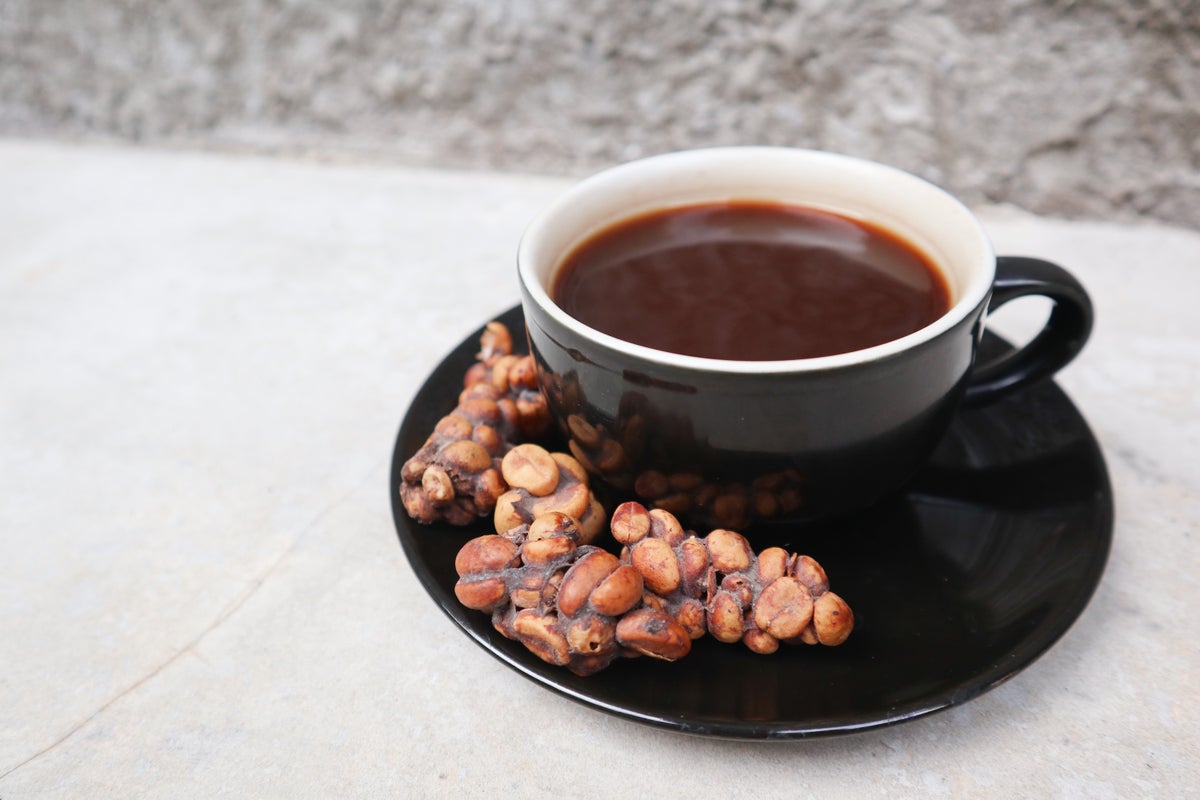
"It has been described as nutty, chocolatey, earthy and even fishy: a wildly expensive coffee that can sell for more than 100 times the price of regular brews, made from beans eaten and excreted by civet cats'. Scientists have long wondered what lies behind civet coffee's unique flavour. A team now says that the digested beans contain high levels of two compounds commonly used as flavouring agents in dairy products and these might contribute to the coffee's distinctive taste."
"Civet coffee is produced across Asia. Called Kopi Luwak in its origin country of Indonesia, it grabbed international attention after being featured in the 2007 film The Bucket List. Asian palm civets (Paradoxurus hermaphroditus) eat the fruit or cherries of coffee shrubs, and the seeds (commonly called beans) can be picked from their scat. These are then roasted to make coffee with a unique flavour; the resulting beans can cost more than US$1,300 per kilogram, and the coffee up to $75 per cup."
"These high prices drive civet-coffee tourism and incentivize farms that use caged civets to produce the brew. Several groups, including the UK-based charity The Civet Project, have highlighted serious animal-welfare concerns around these farms, noting that they might also foster viruses with the potential to cause pandemics. Zoologist Palatty Allesh Sinu at the Central University of Kerala in India, and ecologist colleagues took a close look at the beans picked from civet poo across the Indian district of Kodagu, where the civets are wild."
Civet coffee is produced when Asian palm civets eat coffee cherries and excrete the seeds, which are collected, roasted and brewed. The beans fetch extremely high prices and drive tourism and farming practices that often cage civets. High prices and caged production raise serious animal-welfare concerns and possible zoonotic risks. Scientists report that digested civet beans contain elevated levels of two compounds commonly used as dairy flavouring agents, suggesting a chemical contribution to the unique taste. Researchers sampled beans from wild civets in Kodagu, India, and aim to identify digestive enzymes involved in flavour changes to support animal welfare.
Read at www.nature.com
Unable to calculate read time
Collection
[
|
...
]